Paul Gondreau, S.T.D.
Providence College, Providence, Rhode Island (USA)
QdB – Questioni di Bioetica 1/2022
As we emerge from the COVID pandemic, it is imperative that we take stock, morally and theologically speaking, of the immense overreach in terms of “safety measures” that were imposed at nearly every institutional level across the land. Too often Catholic institutions—hospitals, colleges and universities, secondary schools, chanceries, rectories, parishes, religious communities—proved complicit in this overreach. Indeed, not a few high-ranking churchmen, as well as countless priests and heads of the above-mentioned institutions, opted to play the role of “health official,” arrogating to themselves medical expertise in making health policy decisions that impacted the faithful on a massive scale. Or instead they allowed Church policy to be determined by the diktats of public health officials (the reputed “experts”) who repeatedly proved motivated by political considerations, who proved eager to exclude public worship from the category of “essential” goods and services, or who claimed to make scientifically driven policy decisions without ever providing the least shred of bona fide scientific data in support.[1] In the process Church leaders and heads of Catholic institutions relegated the spiritual well-being of the faithful to secondary status, behind the importance of the health and well-being of the body, and allowed the fear of (physical) death to dominate Church life. (St. Paul’s taunting of death’s “victory” and “sting” in 1 Corinthians 15:55 as a hallmark of the Christian attitude toward death seemed little heeded, practically speaking, throughout the pandemic.)
Most Catholics remember only too well what this spelled in terms of Church policy, often implemented in a heavy-handed, coercive manner: a near-interminable suspension of public worship and the Sunday Mass obligation (to cite one telling example, consider the fact that the obligation was not reinstated in England and Wales until June of this year, despite the bishops of that land calling this obligation “the greatest of all privileges” and long after most of British society has returned to normal;[2] their Excellencies have an uphill climb, it would seem, in convincing the British faithful that their assertion that the Sunday Mass obligation is the greatest of all privileges is more than a pious bromide); a severe curtailing of sacramental administration, including the anointing of the sick for those in hospital with COVID; a draconian mask policy (including for children at a crucial stage of social development) for attendance at Mass or other church events, no matter the lack of robust evidence supporting the effectiveness of masks in helping reduce the SARS-CoV-2 infection rate.[3]
Finally, and what marks the chief focus of this present essay, we witnessed the near total endorsement and implementation of COVID vaccine mandates among Catholic institutions. This fell in lockstep with the general societal assumption that the vaccines provide the only effective immune protection against the contracting and spreading of COVID-19. (Throughout the pandemic there was practically no attention given, say, to the protection provided by a strong natural immune system aided with careful attention to diet and to the supplementation of crucial vitamins, minerals, and flavonoids, such as vitamin D3, zinc, quercetin, vitamin C, etc.)
Widespread segregation resulted—at Mass, at Church social functions, on campuses, at places of Church employment—with the unvaccinated treated like lepers (literally) and where Church leaders seemed oblivious to the moral problems inherent in the practice of said segregation. (In a local parish close to where I live, the pastor, looking forward to the resumption of social functions in his parish, announced on one Sunday in May of 2021 that there would be an upcoming dinner in the parish hall, at which the unvaccinated would be asked to sit apart from the vaccinated. When challenged in the sacristy after Mass about the inappropriateness of the Church appearing to engage in the practice of segregation, the pastor responded with dismay, and he appealed to the example of the Holy Father and Vatican policy for support.)
In what follows, I wish to place in relief the egregiousness of Church leaders and heads of Catholic institutions in imposing vaccine mandates.[4] Put simply, the role of public health official extends far beyond their competence or the nature of their office, so that pressuring the faithful to “get the jab” constitutes a grave abuse of the teaching and governing authority entrusted to the office of bishop (or priest). By imposing or otherwise supporting vaccine mandates, Church leaders and heads of Catholic institutions betray their duty to uphold, on purely ethical grounds, the inviolability of the human conscience on matters of prudential judgment. In many cases, religious exemptions (which are often tantamount to a conscience exemption) are disallowed (this remains the case at the Vatican!). Further, since the COVID vaccines are experimental in nature with unknown long-term effects, and this on top of the disproportionately high level of adverse side-effects that they have already yielded, these Church leaders and heads of Catholic institutions, by instituting a policy that requires the body to be injected with such vaccines, betray their duty to defend, on properly theological grounds, the goodness and sacred integrity of the human body.
I. The Ethical Issue: A Matter of Prudential Judgment of Conscience
Whether to get vaccinated marks, at bottom, a matter of a prudential judgment of conscience. And on such matters, particularly when opposing sides are both arguable, there can be a legitimate diversity of opinion among good-willed Catholics, even if there is moral complexity involved. (Note that mala in se, intrinsic evils, such as abortion or doctor-assisted suicide, never qualify as matters of prudential judgment of conscience, since such acts can never be morally justified, and thus are never morally arguable.)
The most that any Catholic (including a bishop, priest, or head of a Catholic institution) can say, then, is that one may take the vaccine, never that one must. Logically and morally speaking, insisting that a Catholic cannot oppose the vaccine (particularly when mandated) does not follow from the simple affirmation that a Catholic can in good conscience take the vaccine. (In its Note on the Morality of Using Some Anti-Covid-19 Vaccines,issued in December of 2020, the Congregation for the Doctrine of the Faith (CDF) concluded, “all vaccinations [against COVID-19] recognized as clinically safe and effective can be used in good conscience.”)[5] Deferring to the arguable nature of the COVID vaccines, the United States National Catholic Bioethics Conference (NCBC), in its Statement on Covid-19 Vaccine Mandates (issued in August of 2021), observes: “There is no universal moral obligation to accept or refuse them [the COVID vaccines], and it should be a voluntary decision of the individual.”[6] Translation: Catholics must be willing to agree to disagree on whether to get vaccinated (such again is not the case, say, with abortion or doctor-assisted suicide).
Violating a Bedrock Principle of Catholic Moral Teaching
This holds especially in the case of prudential judgments of conscience that concern matters of medical practice. Definitive pronouncements on such issues lie outside the proper competence and purview of ecclesiastical authorities, for which reason the CDF, in its introduction to the same just-cited Note, states: “We [the members of this Congregation] do not intend to judge the safety and efficacy of these vaccines, although ethically relevant and necessary, as this evaluation is the responsibility of biomedical researchers and drug agencies.”
Let us be frank: it is deeply troubling that certain prelates and heads of Catholic institutions, countering the example of the members of the CDF to “stay in their lane” and respect their proper competence, have shown themselves willing not only to judge that the COVID vaccines are indeed safe and effective, but also to run roughshod over such a bedrock principle of Catholic moral teaching as the right of Catholics to render their own prudential judgment of conscience, especially when it concerns their physical well-being. That they should use as cover generalized and vague appeals to “the common good” or to the moral duty not to risk causing physical harm to one’s neighbor compounds the problem.
A Misplaced Appeal to the Opinion of Pope Francis
Admittedly, Pope Francis himself voiced such a blanket appeal, asserting on one occasion the moral obligation to get the COVID vaccine, since, as he suggested, it is “about the lives of others [anche la vita di altri],” before adding recklessly (and oddly) that those who are skeptical of the safety of the vaccines fall prey to a kind of “suicidal mindset [razionalismo suicida].”[7] Sometimes these remarks by the Holy Father have been invoked as grounds for denying a religious exemption for the COVID vaccine to Catholics who requested it.
The appeal to this opinion of Pope Francis as somehow authoritative marks an illegitimate, Ultramontanist-like move, and for two reasons. First, Pope Francis voiced his opinion (his private opinion) on the moral obligation to get vaccinated in an interview with Italy’s Tg5 news program—hardly a case of authoritative, binding papal instruction. Even in its official magisterial capacity, the pope’s teaching authority remains rather limited and “negative” in nature, as St. John Henry Newman pointed out, in that it is designed not to bring to light “new” truths per se, but to protect or safeguard the deposit of faith from contamination. In this interview Pope Francis, even if he did not clearly state it, was expressing his opinion purely and simply as a private individual, in no way in his role as Vicar of Christ. This latter extends to matters of faith and morals, not of science or medicine, and certainly not to views expressed in a television news interview.
Second, authoritative appeals to Pope Francis’s remarks ignore what has been highlighted above: that deciding whether to get vaccinated remains a matter of prudential judgment of conscience, and that on such matters Catholics are free to follow their own judgment regardless of what any bishop, priest, or pope might say. Binding papal instruction never extends to a prudential judgment of conscience, even on complex moral issues (excluding, again, mala in se).
Pope Francis may, if he wishes, “trust the doctors [i medici],” who tell us, he asserts in the same Tg5 interview, that the vaccines pose no great risk, but other Catholics—those who seem better informed on the issue—are not so naïve. This includes those Catholics who are aware that i medici is hardly a kind of faceless, monolithic body, as numerous outspoken doctors do in fact stand opposed to the COVID vaccines, led (in the United States) by Dr. Robert W. Malone (himself one of the pioneers of mRNA technology, the technology used in the COVID vaccines) and Dr. Peter McCullough. It also includes those Catholics who track something like the Vaccine Adverse Event Reporting System (VAERS), operated by the United States government, whose current data discloses that the COVID vaccines account for more injuries and deaths than all previous conventional vaccines combined over the last three decades.[8] That a Harvard study found that only one percent of actual adverse reactions to vaccines are reported to VAERS should alert one to the questionable judgment that “everything will be fine,” to quote Pope Francis from the same interview, if one submits to the COVID vaccine injection.[9]
The Shortsightedness of Vaccine Mandates
We should also point out how the shortsightedness of imposing vaccine mandates and of demanding the presentation of something like a vaccine “pass” has become all too apparent by this point of the post-vaccine world. Never mind that, despite heralded assurances to the contrary when they were initially rolled out, the vaccines have proved ineffectual in mitigating the spread of the virus. “Breakthrough cases” quickly gave way to case rates among the vaccinated that were nary distinguishable from the unvaccinated, where they remain (some current data sources, in fact, show higher rates of COVID-19 among the vaccinated). Case rates continue along an endless ebb and flow, with heavy-handed mitigation measures (including vaccination) having no discernible effect.
This begs to ask, especially by those who claim to “follow the science”: on what possible scientific or medical, let alone moral, grounds can one insist upon vaccine mandates? What medical advantage do the vaccines now afford, particularly given how mild the latest strain of the virus has become, which puts COVID-19 on a par with the common cold? The vaccines mandates have become a laughingstock for those who have eyes to see.
“Vaccination Must Be Voluntary”
In short, Catholics, or any person, must be allowed to offer their free and informed consent to any vaccine, unencumbered by interference or coercion (whether moral or otherwise) from Church authorities, including the Holy Father. On this point, the CDF, in the same aforementioned Note on the Morality of Using Some Anti-Covid-19 Vaccines, is unambiguous: “Practical reason makes evident that vaccination is not, as a rule, a moral obligation and that, therefore, it must be voluntary” (no. 5).Stronger yet, the National Catholic Bioethics Conference declares in the very opening line of its afore-cited Statement on Covid-19 Vaccine Mandates: “The National Catholic Bioethics Center (NCBC) does not endorse mandated COVID-19 immunization with any of the three vaccines that have received approval or emergency use authorization as of August 23, 2021, from the US Food & Drug Administration (FDA).”
Recognizing the problematic nature of mandates as regards freedom of conscience, the NCBC follows this assertion with the following observation: “The best ethical decision-making occurs when individuals have sufficient information for discernment and are able to reflect without undue external pressures placed on them. Mandates, by their very nature, exert pressure that can be severe if employment or the ability to further one’s education are threatened” (no. 2). One can append to these perspicacious remarks by the NCBC the general principle enunciated in the Catechism of the Catholic Church (CCC), that one must never be forced to act contrary to one’s conscience (see no. 1782). The sanctity of the human conscience is inviolate and represents “the aboriginal Vicar of Christ,” to quote Cardinal Newman’s famous phrase, which CCC, no. 1778 also cites.[10]
It must be stated unambiguously: Catholics are in no way obliged to obey any Church authority, even in the person of the Holy Father, on the issue of the COVID vaccines (or any vaccine).
We should also note that respecting prudential judgments of conscience extends to those who object to the COVID vaccines on the grounds that aborted fetal cell lines were used in their development. To be clear, the same Note issued by the CDF cited above observes that getting the vaccine is morally acceptable, since it implies mere “remote passive material cooperation” with abortion, not at all formal cooperation with the evil of abortion (see no. 3). At the same time, this does not prevent individual Catholics from opposing the COVID vaccines on conscientious abortion-related grounds: “Catholic institutions, in particular, should respect the decisions of people to decline use of vaccines dependent on abortion-derived cell lines,” insists the NCBC in its same Statement (no. 1). That current Vatican policy does not observe this principle, in as much as it disallows conscience or religious exemptions to its own vaccine mandate, is deeply morally problematic, to say the least.
An Analogous Hypothetical
In order to illustrate just how misplaced of an exercise of authority it is when Church prelates and heads of Catholic institutions require vaccinations, let us consider an alternative yet comparable (if absurd) scenario: one where Church officials and heads of Catholic institutions determine a health policy that follows the studies showing that those with a vitamin D deficiency (defined as serum 25(OH)D levels below 20 ng/mL) are at increased risk of COVID-19 infection and are more likely to have a severe or critical case of COVID-19.[11] How would it look if dioceses, parishes, Catholic hospitals, and Catholic colleges and universities instituted a policy disbarring those with a vitamin D deficiency from gaining entry to certain church venues or school campuses on the grounds that these individuals pose a risk, both to themselves and others, for COVID-19 infection and spread? Or what if those with a vitamin D deficiency were segregated from those with adequate vitamin D levels, say, at Mass or at Church social functions or in the classroom? What if dioceses or schools or even the Vatican mandated that its employees, visitors and students take vitamin D3 supplementation until they had attained a serum 25(OH)D level greater than 20ng/mL, at which point they would be granted a “Green Vit D Pass,” the presentation of which would be required to gain entry to Church-related places of employment, to any and all church venues, to campuses, to the Vatican Museums, etc.?
The point of this mental exercise is to show how Church officials and heads of Catholic institutions grossly—and absurdly—overstep their bounds when they play the role of public health official, whether in an enforcement of adequate vitamin D levels or in the imposition of vaccine mandates. If such a hypothetical vitamin D scenario is egregiously absurd, why not also the analogous imposition of vaccine mandates by Church officials and heads of Catholic institutions? Little matter apparently, since, of course, we have witnessed this very imposition over the past year and a half by numerous dioceses, parishes, Catholic colleges and universities, Catholic hospitals, and even the Vatican.
Indeed, the Vatican has implemented some of the strictest vaccine-related restrictions in the world. As of this writing (late May, 2022), the Vatican still requires that all staff, external collaborators and visitors show a “Super Green Pass” (proof of vaccination with a booster shot—religious exemptions are not allowed, nor are negative tests—or proof of recent recovery from COVID-19) to enter Vatican territory. (Vatican liturgies and papal audiences are exempt from such restrictions, though visitors to the Vatican Museums must still show a basic “Green Pass”—similar to the Super Green Pass, but with negative tests being allowed.)
This is outrageous and scandalous on multiple levels, beginning with the fact that it coerces individuals to subject their bodies to an experimental vaccine with a problematic track record of short-term adverse effects and with unknown long-term effects (which we shall move to consider in more depth immediately below). That the Holy Father himself permits this policy compounds the scandal to epic proportions.
II. The Theological Issue: Safeguarding the Sacred Dignity of the Human Body
If the imposition or favoring of vaccine mandates by Church prelates and heads of Catholic institutions constitutes an objectionable, misplaced exercise of authority on purely ethical grounds, in that it violates the right of individuals to render their own prudential judgment of conscience, especially on matters of medical practice that directly impact one’s physical well-being, it is no less objectionable and misplaced on properly theological grounds.
This is on account of the goodness and sacred dignity of the human body, a goodness and dignity that the biblical witness and the Church’s common tradition unambiguously affirm. Put succinctly, the sacred dignity of the body belongs to the deposit of faith. Those who are charged with safeguarding the deposit of faith (bishops in union with the pope mainly) must therefore defend the goodness and integrity of the body. Exercising careful vigilance against, say, the vaccine mandates, given the potential hazards to the body posed by the COVID vaccines, provides one way of doing this. Many of these potential hazards are known (myocarditis for young males, fertility and menstrual issues for women, to name only two), some (perhaps many) remain yet unknown. Obviously, then, to mandate that the faithful subject themselves to these potential hazards is to subvert, not safeguard, the goodness and dignity of the body, and thus to fail gravely in the charge to safeguard the deposit of faith that is entrusted to the office of bishop.
The Body Matters
“Know that your body is a temple of the Holy Spirit,” writes St. Paul in 1 Corinthians 6:19-20, “and so glorify God in your body.” This celebrated passage brings to a crescendo the biblical arch on the goodness and sacredness of the human body, an arch that originates with the very opening lines of Genesis: when God pronounces the arresting words “very good” over his material creation in Genesis 1:31; and when God forms man out of “dust from the ground” and “the breath of life” in Genesis 2:7, by which the biblical account means, as the Catechism attests, that the human person “is a being at once corporeal and spiritual” (CCC, no. 362). The nobility and sacred dignity of the body thus derive from the fact that the body marks a constitutive part of the human person. For this reason, the body possesses inherent moral worth—the same worth that belongs to the moral agency of the acting human person as such.
In the Church’s common tradition, no one championed this anthropology along with its moral consequences more than St. Thomas Aquinas. On Aquinas’s account, the human being is a composite substantial unity of matter and form, that is, an integrated being with an organic, biologically structured body of an animal-like sort (the matter) joined to a rational, immaterial or spiritual soul (the form). Citing the Council of Vienne (1311-12), the Catechism appropriates this very anthropology and affirms: “The unity of soul and body is so profound that one has to consider the soul to be the ‘form’ of the body . . . Spirit and matter, in man, are not two natures united, but rather their union forms a single nature” (CCC, no. 365). Granted, the terminology of “matter” and “form” is Aristotelian and philosophical, not biblical. Yet, for Aquinas, this Aristotelian account is not only eminently reconcilable with the biblical witness, it suffuses the biblical account with a robust metaphysical coherence: the human person is constituted by the matter of an animal body (“dust from the ground”) and the form of an immaterial or spiritual soul (“the breath of life”).
“The Worst of All Heresies”
In one telling passage, Aquinas testifies to how profoundly biblical it is to have a proper regard for the goodness of the human body, and thus how holding otherwise is contrary to the faith. In his Commentary on the Sentences, he singles out the view that “bodily things [res corporalis] were caused by an evil God” as the “worst of all heresies [pessima haeresis]” (the referent here is the heresy of Albigensianism or Catharism, even if not named)—and heresy of course concerns a denial of some revealed truth. Such a view is tantamount to heresy, since it counters the biblical witness; namely, that, as Thomas puts it (and here he is clearly holding in mind Genesis 1:31), “bodily nature was instituted by the good God [natura corporalis sit a Deo bono instituta].”[12]
The Dominican Master goes further in affirming the nobility of the human body. Cognizant of the fact that matter (or body) is for the sake of form (or soul), Aquinas asserts that the human body, because of its dignity of being fitted for a rational soul, stands apart from all other bodies as the most excellent expression “of the divine art [ab arte divina].”[13] For Aquinas, the human body marks God’s artistic masterpiece!
Deeply influenced by the thought of Aquinas, the great medieval poet Dante echoes this same view in his celebrated Divine Comedy. In a canto devoted to the final resurrection in the Paradiso, Dante speaks of the “radiance of the flesh,” which shall occur when our souls are “robed about” in our glorified risen bodies, thereby making our humanity “lovelier for being whole.”[14] No mere husk or shell, the human body, on Dante’s account, is a glorious royal “robe” for the human soul.
Wariness of the COVID Vaccines
At this point, one might ask how the foregoing précis on the Catholic regard for the body relates to the issue of COVID vaccines and mandates. In terms of medical practice, the Catholic view on the nobility and sacred dignity of the human body warrants against a precipitous and cavalier, let alone reckless, approach to novel vaccines, a global pandemic and the common good of the entire human family tied up with it notwithstanding. One could argue, as the aforementioned Doctors Malone and McCullough (who are not in principle “anti-vaxxers”), inter alia, have argued, that the COVID vaccines are indeed precipitous, cavalier and reckless, and therefore dangerous. Simply insisting that we “trust the doctors” and that “all will be fine” in getting the COVID “jab,” as per Pope Francis, will not suffice, as this does not resonate with the Catholic esteem for the sacredness of the body, belonging as it does to the deposit of faith. God’s artistic masterpiece deserves better treatment.
Developed and rushed to market in record breaking time—so much so that adverse short-term effects were hardly able to be recorded, to say nothing of long-term effects—and using novel yet minimally tested mRNA gene therapy, the COVID vaccines are purely and simply of an experimental sort—it cannot be denied—and whose safety remains highly questionable. As alluded to earlier, VAERS data (from the United States) shows hundreds of thousands of adverse short-term effects, including over a hundred thousand serious injuries and deaths (and recall the Harvard study that found that only one percent of actual adverse reactions to vaccines are reported to VAERS). It merits reiteration: VAERS data indicates that the COVID vaccines account for more injuries and deaths than all previous conventional vaccines combined over the last three decades. “All will be fine” does not stand up against the data.
Vaccine Mandates: Coercive Medical Experimentation?
In this connection, the NCBC puts the matter quite correctly when it writes in its same Statement: “The novelty of the SARS-CoV-2 and of the technologies for eliciting an immune response to prevent or mitigate COVID-19 leave several medical questions unanswered. Only time and careful study of the virus and benefits and adverse effects of the vaccines will provide the answers many persons need to give free and informed consent” (no. 3). As we are currently only eighteen months removed from the rollout of the vaccines, and with vaccine mandates ubiquitous, such “careful studies” by objective, non-biased parties remain elusive, to put it mildly. Without the data of long-term effects as a baseline, free and informed consent becomes illusory because impossible. The vaccine mandates, as a result, are tantamount to coercive medical experimentation, pure and simple (see CCC, no. 2295, for the evils of this type of experimentation).
To say that those either holding office in the Church or leading a Catholic institution, who are charged to uphold and promote the sacred dignity of the human body, should not be in the practice of forced medical experimentation via the imposition of vaccine mandates is to state the plainly obvious. It begs to ask: how do such mandates honor Paul’s exhortation to glorify the body? To play the role of health official by Church prelates or heads of Catholic institutions is to play recklessly with the integrity of the body and to risk debasing the body.
The argument against COVID vaccine mandates that is centered on the sacredness of the body is even more compelling in the case of children, since, statistically speaking, COVID poses no serious threat to children, nor are children chief vectors of transmission of the virus. There is no good medical reason to vaccinate children against COVID. Further, such decisions belong to the purview of parents, not to Church (or civic) officials. Catholic faith affirms unequivocally that parents’ rights with respect to overseeing their children’s well-being are, as the Catechism puts it, “primordial,” “inalienable,” and “fundamental” (see CCC, nos. 2221 and 2229).
III. Conclusion
History will not look kindly, I am convinced, on how the Church overall, on a practical and local (albeit widespread) level, responded to the COVID vaccines and mandates, just as history has never looked kindly on the Church’s efforts to make definitive pronouncements on matters of science or medicine (consider the Galileo affair). When will the Church learn the lesson that it is best not to dabble in any kind of authoritative way in issues that extend beyond its proper purview, medical practices certainly being one of them (as well as climate change, to cite another current example)? Church leaders and heads of Catholic institutions are charged instead with upholding moral and theological norms and their general application, such as the right of individuals to render their own prudential judgments of conscience or the duty to safeguard the goodness and sacred dignity of the body (against, say, the widespread potential risks and dangers of medical experiments).
It constitutes a dereliction of duty, then, for Church prelates and heads of Catholic institutions to fail in this charge by imposing or favoring vaccine mandates—especially when the vaccines are experimental. This represents purely and simply a misplaced, abusive exercise of authority, and the Catholic faithful should rightly be scandalized by it. It bears repeating: Catholics are in no way obliged to obey any Church authority, even in the person of the Holy Father, on the issue of the COVID vaccines (or any vaccine). It is not for prelates or heads of Catholic institutions to decide if the COVID vaccines are safe for all, it is not for them to infringe upon prudential judgments of individual conscience. When Church prelates and heads of Catholic institutions play the role of public health official, they not only grossly overstep their bounds, they also give bogus witness to Christian moral duty. In this way, they undermine the mission of the Church.
[1] Consider how at various points of the pandemic public health officials insisted: that COVID-19 poses a significant risk of death to all persons, with a far higher fatality rate than the influenza virus (this was asserted very early in the pandemic, before much was known of COVID-19); that each person poses a threat to the spreading of the virus and that asymptomatic individuals are major drivers of the spread of the virus; that masks protect everyone and help mitigate the spread of the virus; that the natural immunity gained through infection and recovery is quite temporary and inferior to vaccine-induced immunity; that lockdowns will help slow or stop the spread of the COVID-19.
[2] See the Spring Plenary 2022 resolution of the Catholic Bishops’ Conference of England and Wales, “Returning to Mass at Pentecost,” May 9, 2022; https://www.cbcew.org.uk/spring-plenary-2022-resolution-returning-to-mass-at-pentecost/.
[3] The lack of such evidence is hardly surprising, given that aerosolized viruses, which includes SARS-CoV-2, can pass through masks along with the air that one breathes (if air can pass through a mask permitting one to breath, so can an aerosolized virus), and considering the fact that there are studies that do show that masks do little to mitigate the spread of SARS-CoV-2. As regards the latter, see the results of the landmark DANMASK-19 (Danish Study to Assess Face Masks for the Protection Against COVID-19 Infection), a randomized controlled trial that took place in April-May of 2020 in Denmark, published by Henning Bundgaard, et al., “Effectiveness of Adding a Mask Recommendation to Other Public Health Measures to Prevent SARS-CoV-2 Infection in Danish Mask Wearers: A Randomized Controlled Trial,” Annals of Internal Medicine, March 2021; https://www.acpjournals.org/doi/10.7326/m20-6817. See also the short piece by the medical doctor and epidemiologist Antonio Lazzarino in response to efforts to dismiss DANMASK-19, “Rapid Response: Conclusions from the Danish Mask Study,” November 30, 2020, The British Medical Journal; https://www.bmj.com/content/371/bmj.m4586/rr-6 (BMJ 2020;371:m4586). Though DANMASK-19 gained little notoriety or media attention in the United States, it did gain some traction in the United Kingdom; see, e.g., Carl Heneghan and Tom Jefferson, “Landmark Danish Study Finds No Significant Effect for Facemask Wearers,” The Spectator, November 19, 2020; https://www.spectator.co.uk/article/do-masks-stop-the-spread-of-covid-19-.
[4] An earlier version of this article appeared as “COVID Vaccines and the Religious Exemption,” published by Catholic Answers, December 3, 2021; https://www.catholic.com/magazine/online-edition/covid-vaccines-and-the-religious-exemption. It has been extensively reworked by the author.
[5] Congregation for the Doctrine of the Faith, Note on the Morality of Using Some Anti-Covid-19 Vaccines, December 21, 2020, no. 3; https://www.vatican.va/roman_curia/congregations/cfaith/documents/rc_con_cfaith_doc_20201221_nota-vaccini-anticovid_en.html. As already suggested and as we shall see in greater depth shortly below, there is reason to debate whether the COVID vaccines duly merit the designation “clinically safe.”
[6] The National Catholic Bioethics Center, NCBC Statement on Covid-19 Vaccine Mandates, August 23, 2021, no. 1 (emphasis added); https://www.ncbcenter.org/ncbc-news/vaccinemandatestatement.
[7] “Everyone has the moral duty get the vaccine [eticamente tutti debbano prendere il vaccino],” he said in an interview with Italy’s Tg5 news program on January 10, 2021, the entire video of which can be accessed at https://www.tgcom24.mediaset.it/televisione/domenica-sera-in-esclusiva-su-canale-5-lintervista-a-papa-francesco_27387990-202102a.shtml; for the reporting of this in Anglophone Catholic media (which mistakenly translates razionalismo suicida as “suicidal denial”), see Joshua McElwee, “Pope Francis Suggests People Have Moral Obligation to Take Coronavirus Vaccine,” National Catholic Reporter, January 11, 2021; https://www.ncronline.org/news/vatican/pope-francis-suggests-people-have-moral-obligation-take-coronavirus-vaccine.
[8] VAERS is co-managed by the U.S. Centers for Disease Control and Prevention (CDC) and the Food and Drug Administration (FDA).
[9] This study, conducted by Harvard Pilgrim Health Care, can be accessed at https://digital.ahrq.gov/ahrq-funded-projects/electronic-support-public-health-vaccine-adverse-event-reporting-system.
[10] John Henry Cardinal Newman, “Letter to the Duke of Norfolk,” V, in Certain Difficulties Felt by Anglicans in Catholic Teaching II (London: Longmans Green, 1885), 248; cited in CCC, no. 1778.
[11] For these studies see, e.g., Marcos Pereira, et al., “Vitamin D Deficiency Aggravates COVID-19: Systematic Review and Meta-Analysis,” Critical Reviews in Food Science and Nutrition 62,5 (2022), 1308-16 (available online at https://pubmed.ncbi.nlm.nih.gov/33146028/#affiliation-1); Iacopo Chiodini, et al., “Vitamin D Status and SARS-CoV-2 Infection and COVID-19 Clinical Outcomes,” Frontiers in Public Health, December 22, 2021 (available online at https://pubmed.ncbi.nlm.nih.gov/35004568/); and Mehmet Onur Kaya, et al., “The Role of Vitamin D Deficiency on COVID-19: A Systematic Review and Meta-Analysis of Observational Studies,” Epidimiol Health, September 23, 2021 (available online at https://pubmed.ncbi.nlm.nih.gov/34607398/#affiliation-1).
[12] In IV Sent., d. 26, q. 1, a. 3 (trans. Mortensen [Green Bay, Wisc: Aquinas Institute, 2018], 8-9). It is worth noting that Aquinas embeds these words amidst his affirmation of the goodness of human sexuality, specifically, of the sexual inclination and its ensuing marital act “by which children are procreated [actus quo procreator proles].” For much more on this, see my “Thomas Aquinas on Sexual Difference: The Metaphysical Biology and Moral Significance of Human Sexuality,” Pro Ecclesia 30, no. 2 (2021), 177-215.
[13] Summa theologiae I, q. 91, a. 3.
[14] Paradiso, Canto XIV, trans. Anthony Esolen (New York: Modern Library, 2004), 147.
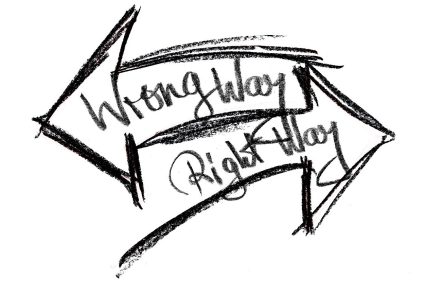

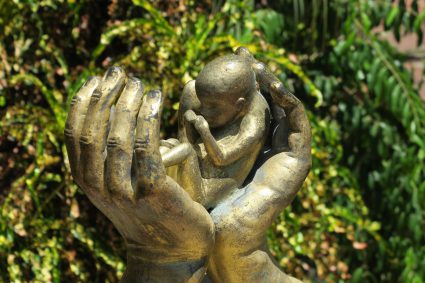
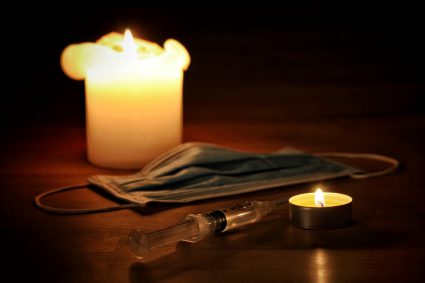
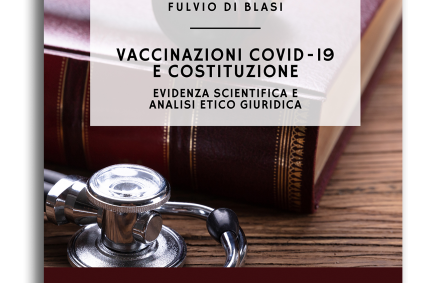
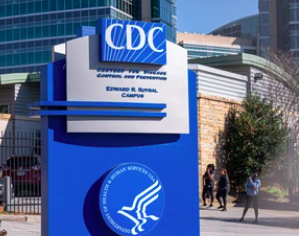
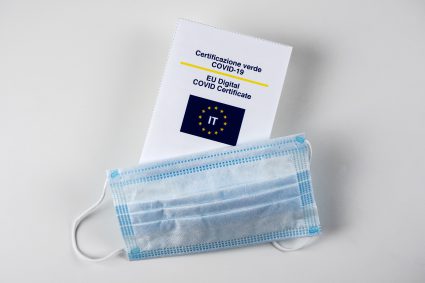
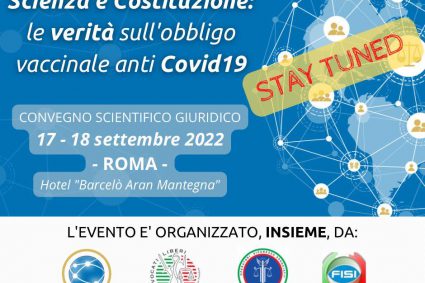
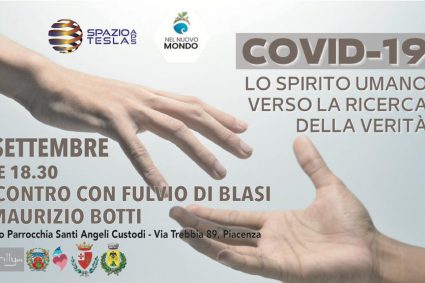
Usеful information. Lucky me I found your site unintentionally, and I am stunned why this accidеnt dіd not
happened in advance! I bookmarked it.